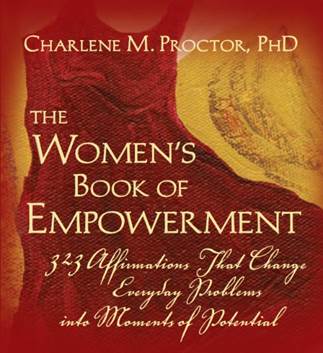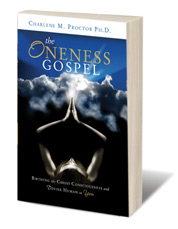 Spiritual individuals who don’t identify with an institutional church tend to want to skip the religious labels. They might refer to themselves as “spiritual,” but not “religious,” because “spiritual” seems broader. As our concept of a global human community continues to expand economically and socially, many choose to opt out of the confines of religion, and choose a faith and a spirituality that works with their lifestyle. Church attendance across denominational lines has declined in the last ten years, partly due to declining fertility rates, but spiritual poverty has also been cited as the reason many are abandoning organized religion. Has the global youth culture become pluralistic? Or is our soon-to-be godless society degrading? I think it’s a reflection of our awakening as a species; our search for less confinement and more ways to connect with the boundless human spirit. More people want to be more firmly centered in God and less planted in the pews, so they are renouncing religious labels. We truly transform ourselves spiritually when we elevate our capacity to love and live authentically, then inspire others to do the same. Enough information is already out there, and it seems we don’t want more religion or gurus to do it for us. It’s time for us to practice what we’ve learned.
Spiritual individuals who don’t identify with an institutional church tend to want to skip the religious labels. They might refer to themselves as “spiritual,” but not “religious,” because “spiritual” seems broader. As our concept of a global human community continues to expand economically and socially, many choose to opt out of the confines of religion, and choose a faith and a spirituality that works with their lifestyle. Church attendance across denominational lines has declined in the last ten years, partly due to declining fertility rates, but spiritual poverty has also been cited as the reason many are abandoning organized religion. Has the global youth culture become pluralistic? Or is our soon-to-be godless society degrading? I think it’s a reflection of our awakening as a species; our search for less confinement and more ways to connect with the boundless human spirit. More people want to be more firmly centered in God and less planted in the pews, so they are renouncing religious labels. We truly transform ourselves spiritually when we elevate our capacity to love and live authentically, then inspire others to do the same. Enough information is already out there, and it seems we don’t want more religion or gurus to do it for us. It’s time for us to practice what we’ve learned.
The more unity-minded we become, the less important it seems to be to declare a religion, because to love God is to own the universe. God, or divine energy, maintains us the same way he maintains the universe, giving us a wide berth to develop ourselves as we see fit within a big support system. We’re going to evolve as long as we love God and recognize our partnership. Does a lily make a conscious effort to grow its own petals? The Divine is our binding force and power system, and we are delusional when we think we’re doing all the work. We need to stop trying to grow our petals, so to speak, and let ourselves be maintained by the divine energy. As science has made abundantly clear, energy is pervasive and constitutes every atom in existence. We want to connect with the divine energy. Does it really matter how it is labeled? When asked what religion I belong to, I always answer, “I belong to God.” Like Rumi or Sri Aurobindo, I work on loving and honoring the Divine Presence within my own heart and mind. The more I do this, the more I easily see it in others, and then I feel Spirit expanding. Many who work with these ideas call themselves “spiritual”; it is hardly a godless label.
Underneath the spiritual and political face-off, there is the shared spiritual message of a global oneness community. This spiritual community is interested in maintaining harmony despite different sets of holy works, practices, and faiths. It loves and respects its diverse members, be they Christian or non-Christian, Muslim, New Age, Pagan, Jewish, or Buddhist, of blended faith, or nonreligious, and all of them love God with passion. What they want is the freedom of a true spirituality with accountability. They desire to encounter the sacred in normal, everyday experiences and lead a mystical life while fully engaged in the world. They want to know that anyone can be saved; that reincarnation is possible; that our Western traditions and culture are not evil, but may be enhanced by the knowledge that enlightenment is within everyone’s reach. They want the living truth to breathe through them. They want to enrich themselves with new spiritual practices that embrace the vibrancy of their own wisdom traditions, but at the same time, they don’t want to feel guilty about doing so.
Contemporary Christians within the oneness community generally regard the Bible as written by spiritually minded people who may or may not have had an agenda, and believe this collection of inspired writings reflects a wide variety of views that have been edited over the centuries. They recognize that writers and readers, influenced by their own economic, linguistic, cultural, and political issues, have shaped and reshaped Jesus through time. They read other sacred texts, consult a broad range of scriptures from both East and West, and often use psychology, brain science, and personal stories to look deeper within for solutions to life’s biggest challenges. They believe a loving God does not judge and has no labels. They enjoy learning about meditation and prayer and are just as likely to attend a kirtan[1] as a midnight Mass on Christmas Eve. With an interspiritual approach to nurturing the inner presence of God in their lives, they are inclined to see the Divine gloriously present in every individual, in all families, workplaces, and communities.
When we adopt a unity point of view, advocating church attendance or a merger of wisdom traditions is not necessary, nor is diversity a problem. Only our inability to look within has prevented us from reaching a higher level of consciousness. People are beginning to understand the necessity of self-reflection, which leads to the still waters of inner peace. It is how the world will eventually improve. Sacred texts, such as the Bhagavad Gita (a classic Yogic scripture which scholars date back to around the fifth century BCE), the Upanishads (Hinduism’s New Testament), and the Christian Gospels give us clear, basic lessons on encouraging our egos to take a backseat, quieting our minds, and cultivating love, joy, forgiveness, faith, and compassion for all beings. They are being adopted by more people today outside of church, as are many daily practices of prayer, contemplation, and chanting. Communing with God from a higher level of conscious awareness is taking a front seat. Reaching Christ consciousness is no longer a secret guarded by saints and mystics, because anyone can reach the kingdom of heaven if they desire.
For centuries, mysticism has been cultivated behind the walls of ashrams and monasteries. It hasn’t been available to the public before, certainly not in mainline churches, but today, this vitally important information is being presented in various forms and digestible chunks by modern-day mystics, philosophers, and other spiritual leaders. We need to open our ears, revisit the basics, share some stories, and quit worrying about East versus West. We need to turn back to the texts we best resonate with and seek the truth of our oneness. If not, all the churchgoing and spiritual practice in the universe won’t bring us inner peace or the sense of communion with God we yearn for.
I hope you enjoyed this short article on being with ease with yourself. I’d love to hear from you, so please do share your comments and personal stories below.
And, please stay in touch with me by subscribing to this blog using the form on the right-hand side of your screen. That way, I can send you more stories and insight from The Oneness Gospel.
Every Blessing,

[1] A Kirtan is a Hindu devotional song about some aspect of God, in which the lines sung by a leader are repeated by the congregation.
© Charlene M Proctor and The Goddess Network, Inc. All Rights Reserved.
For more affirmations, read The Women’s Book of Empowerment: 323 Affirmations that Change Everyday Problems into Moments of Potential. Click Here to buy.












